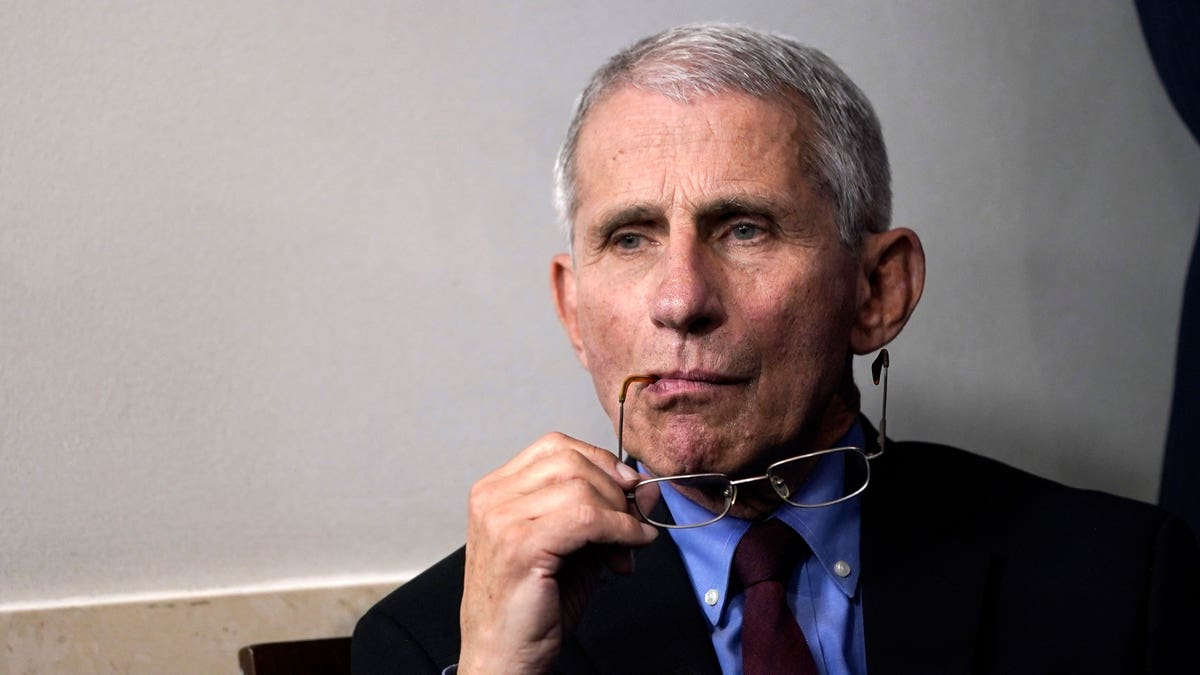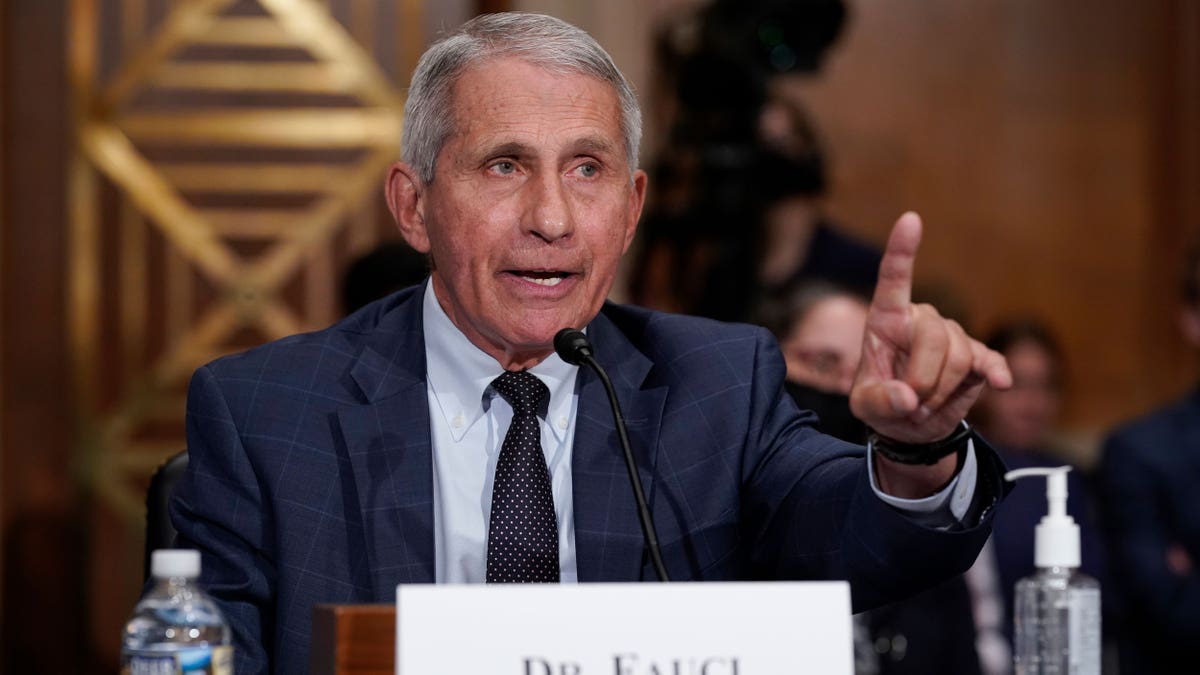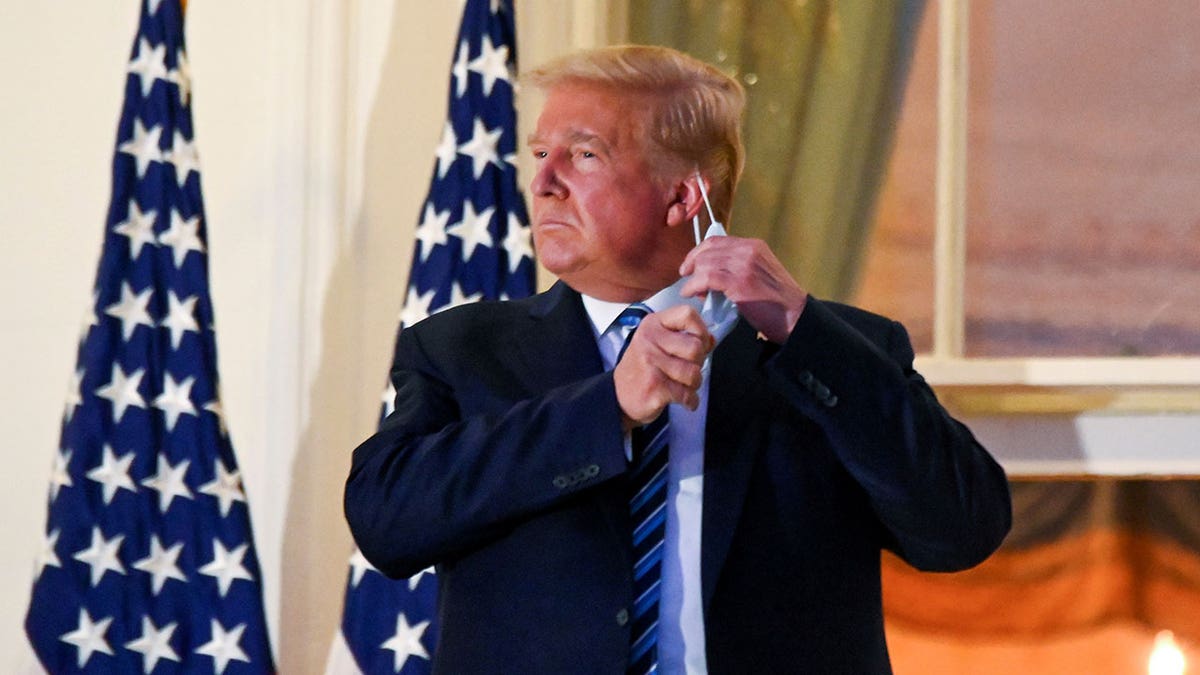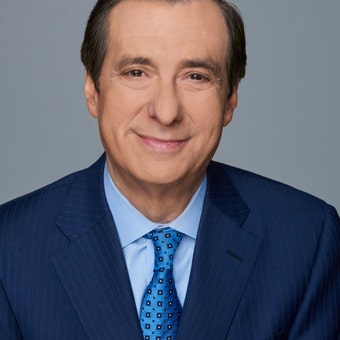Howard Kurtz on CDC Director Walensky: 'Worst public communicator I've ever seen'
Panel discussion with Howard Kurtz, Mollie Hemingway, and Amy Walter on CDC missteps with COVID-19 guidelines on 'Special Report.'
Soon after Anthony Fauci announced he will be stepping down in December, White House chief of staff Ron Klain hailed the doctor:
"I cannot think of a public servant who has done as much to save as many lives for as long a period as Dr. Tony Fauci. And he is a gem of a person."
Just as quickly, Donald Trump Jr. tweeted that Fauci was giving up his post as President Biden’s chief medical adviser "likely to avoid being questioned by a GOP controlled house on how he got everything so wrong for so long!"
The dueling narratives were under way.

National Institute of Allergy and Infectious Diseases (NIAID) Director at the National Institutes of Health (NIH), Dr. Anthony Fauci. (Getty Images)
Fauci was a constant presence on the airwaves, graced magazine covers and generally used his post as head of the infectious-disease institute to become perhaps the most famous–and controversial–physician on the planet. It was little surprise, then, that he did interviews with the New York Times and Washington Post the night before making yesterday’s announcement.
A comparison of the two stories is quite illuminating.
The Post basically nailed it, combining both his prominence and his political battles in the lead:
"Anthony S. Fauci, the nation’s preeminent infectious-disease expert who achieved unprecedented fame while enduring withering political attacks as the face of the coronavirus pandemic response under two presidents, plans to step down in December after more than a half-century of public service, he announced Monday."
The next two paragraphs summarized his tenure, which "made him an adviser to seven presidents and put him on the front lines of every modern-day scourge, including AIDS, the 2001 anthrax scares, Ebola, Zika and the coronavirus pandemic."

Dr. Anthony Fauci debates Rand Paul. (Getty Images)
And then it was back to the criticism:
"While Fauci is one of the most cited researchers of all time and has been widely known in scientific circles for decades, it was the coronavirus pandemic that catapulted him to worldwide fame — and ignited criticism from some Republican politicians and threats from the public."
The paper said he had been slammed during the early days of the AIDS crisis, "but the coronavirus pandemic arrived in a strikingly different era, with social media pouring fuel on the criticism and baseless conspiracy leveled at Fauci and others presiding over the federal government’s response."
The 81-year-old official acknowledged mistakes, such as he and other government scientists saying in the early weeks of the pandemic that Americans didn’t need masks and failing to recognize that people without symptoms could spread the virus.
Those factors "led the surgeon general of the United States, the CDC and me to say, right now, you really don’t need to wear a mask and all of a sudden, it became Tony Fauci is the mask guy," Fauci said. "Since I am the primary target of the far right, when the far right says you got it wrong, it isn’t that everybody got it wrong — it’s that Tony Fauci got it wrong."
That may be spin, but it’s Fauci’s spin.
By contrast, the first five paragraphs of the Times piece are unalloyed praise:
After declaring that Fauci is leaving to "pursue the next chapter" of his career, the story says:
"Few scientists have had as large or as long-lasting an impact on public policy. Dr. Fauci joined the National Institutes of Health in 1968, when Lyndon Johnson was president; he was appointed the director of its infectious disease branch in 1984, when the AIDS epidemic demanded attention.
"Dr. Fauci has advised every president since Ronald Reagan — seven in all — and has been adept at navigating the nexus of science and politics. Among his proudest accomplishments, he said, was his work with President George W. Bush in developing a global program to combat H.I.V./AIDS, known as PEPFAR, which has saved an estimated 21 million lives. Mr. Bush — whose father, George Bush, called Dr. Fauci ‘a hero’ during a 1988 presidential debate — awarded him the Presidential Medal of Freedom in 2008." Only in the sixth paragraph does the Times say this:
"But Dr. Fauci, who catapulted into the spotlight when the coronavirus began spreading in 2020, could not escape the politicization of the Trump era. President Donald J. Trump toyed openly with the idea of firing him (though that would have been difficult because Dr. Fauci is not a political appointee). Conservatives viewed Dr. Fauci as a symbol of lockdowns and masks, which they fiercely resisted."
So it was the "politicization of the Trump era" that created problems for Fauci, and the views of conservatives–painting him as a victim of the right.

U.S. President Donald Trump pulls off his protective face mask as he poses atop the Truman Balcony of the White House after returning from being hospitalized at Walter Reed Medical Center for COVID-19 treatment, in Washington on October 5, 2020. (REUTERS/Erin Scott/File Photo)
TRUMP DENOUNCES FBI FOR COURT-APPROVED MAR-A-LAGO RAID, AND GARLAND'S MAJOR MISTAKE
The next paragraph said Rand Paul and Fauci had called each other liars.
The paper did note the early criticism of Fauci by AIDS activists but added: "Over time, he befriended many of those activists."
SUBSCRIBE TO HOWIE'S MEDIA BUZZMETER PODCAST, A RIFF ON THE DAY'S HOTTEST STORIES
Then there was more praise.
One story combines Fauci’s amazingly long record of public service with his political battles during the pandemic, the other makes those battles a secondary element and paints him largely as a conservative target.
CLICK HERE TO GET THE FOX NEWS APP
Based on my search of Fauci mentions in Twitter, angry posts from the right far outweigh supportive posts from admirers. Ted Cruz, for instance, plans to investigate "his dishonesty, corruption, abuse of power, and multiple lies under oath. Never in our nation’s history has one arrogant bureaucrat destroyed more people’s lives."
I doubt Fauci was expecting a smooth exit, but the battle over his legacy has already begun.











































